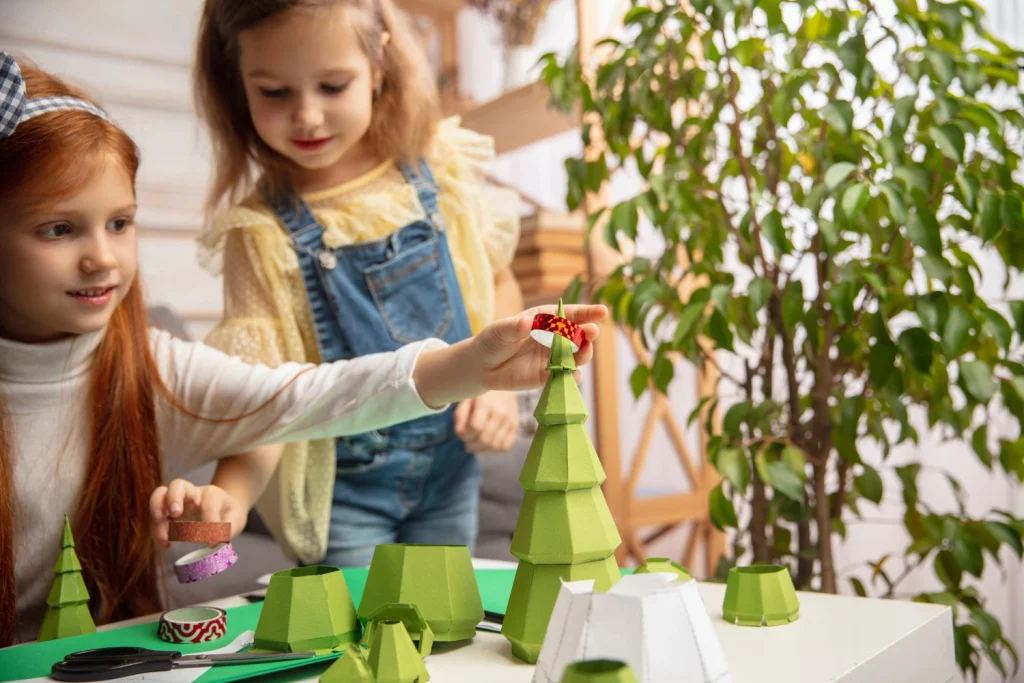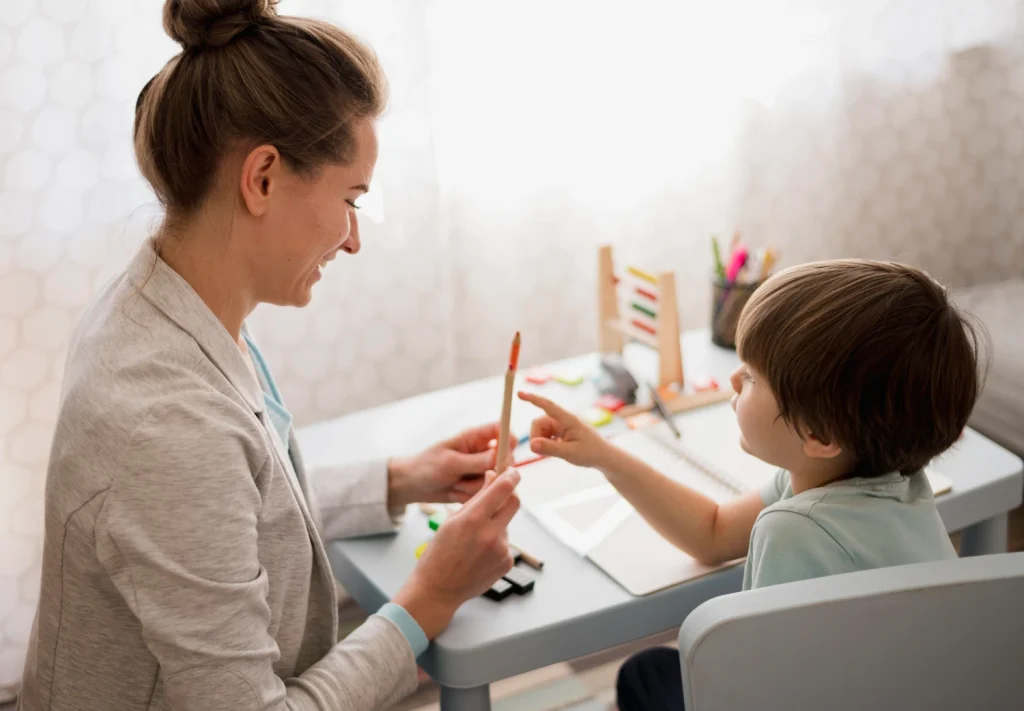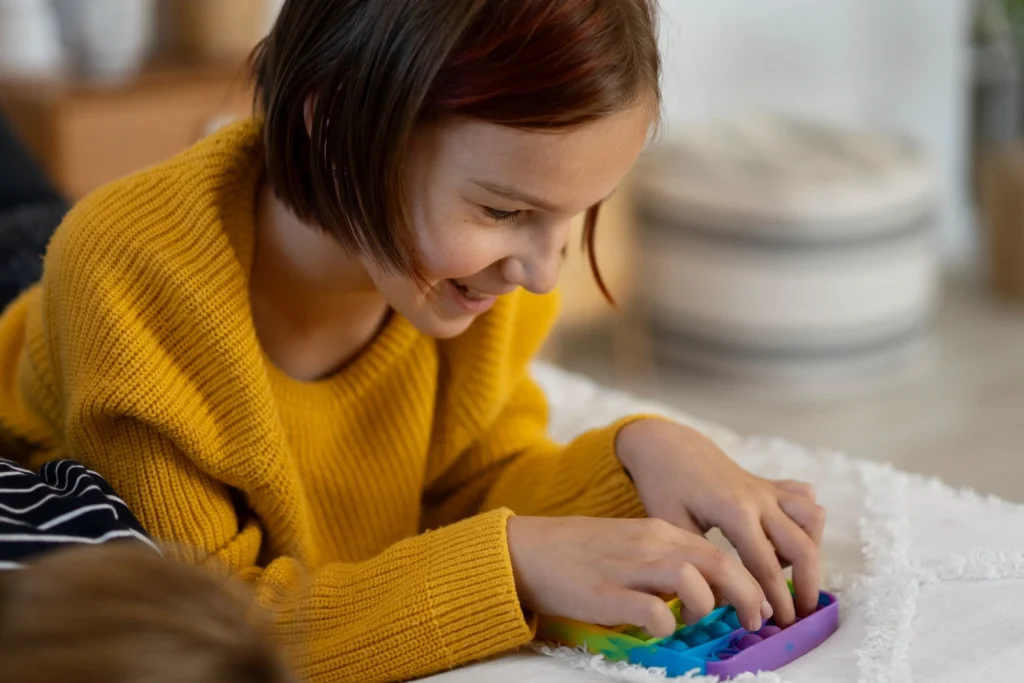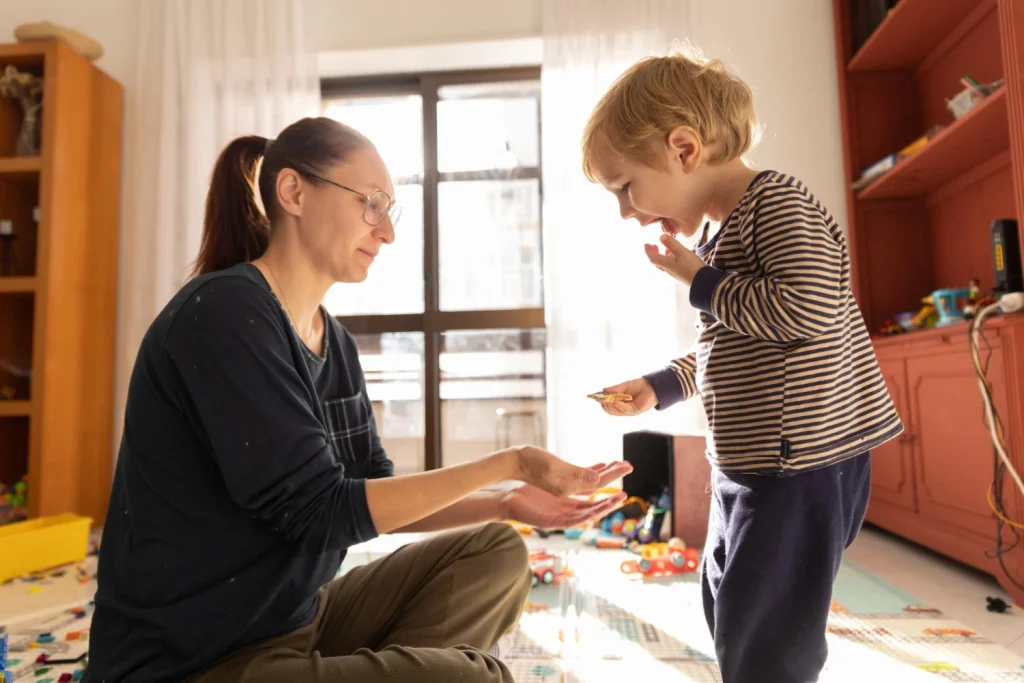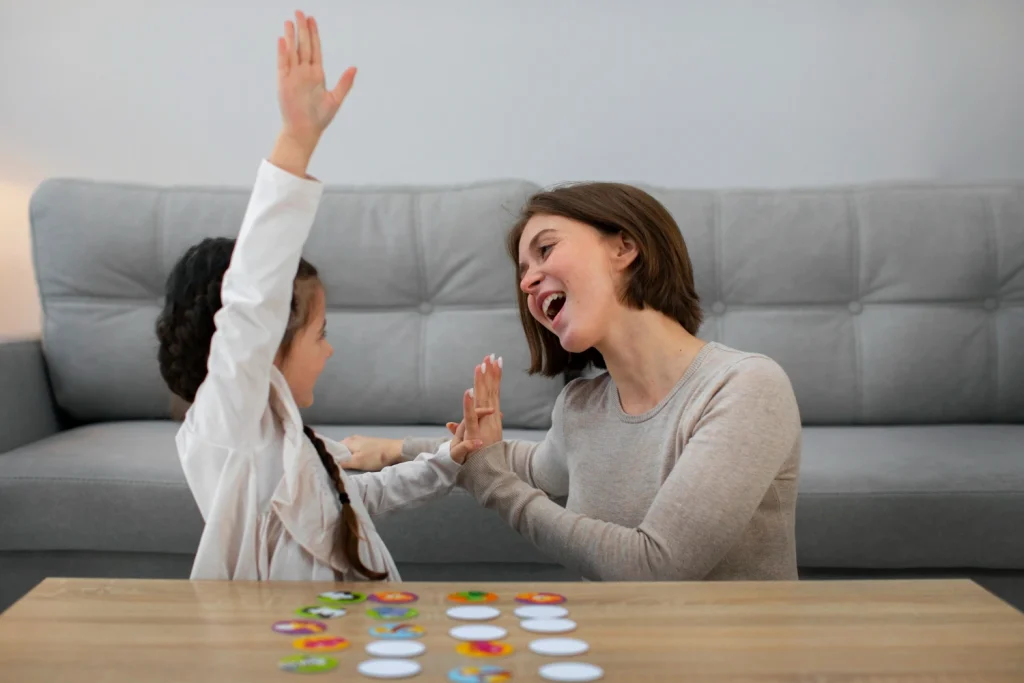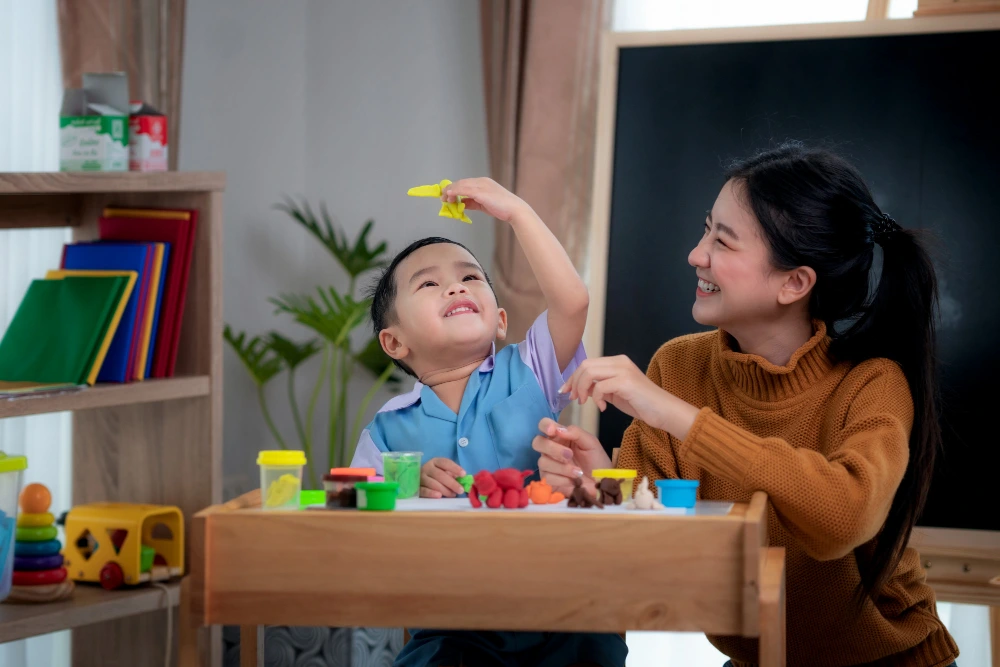Play is more than just fun—it’s how children learn, grow, and connect with the world around them. Among various play approaches, naturalistic play stands out as a gentle, child-led way to foster development in a meaningful, engaging way. When combined with the DIRFloortime® model, naturalistic play becomes a powerful tool to support your child’s social, emotional, and cognitive growth.
What is Naturalistic Play?
Naturalistic play happens in everyday environments—whether at home, in the park, or during daily routines. It’s play that follows your child’s interests, rhythms, and cues, allowing them to explore and interact naturally without rigid structure or adult-led agendas.
This type of play respects each child’s unique style and pace, encouraging spontaneous discovery and joyful interaction. It’s flexible and responsive, making it especially effective for children with developmental differences, such as autism spectrum disorder (ASD).
How DIRFloortime Uses Naturalistic Play to Support Development
DIRFloortime® is a relationship-based, developmental approach designed to meet children “where they are.” It emphasises emotional connection and back-and-forth interaction to build foundational skills like communication, regulation, and problem-solving.
At its core, DIRFloortime encourages adults to enter the child’s world through naturalistic play:
- Following the child’s lead: Instead of directing play, the adult observes the child’s interests and joins in, creating opportunities for interaction.
- Building emotional engagement: Through shared joy and curiosity, adults help children feel safe and motivated to communicate and connect.
- Expanding challenges: Once engaged, the adult gently introduces new ideas or problems within the play, encouraging flexibility and thinking.
Why Naturalistic Play is So Effective for Development
- Promotes authentic connection: Children are more likely to engage when play feels meaningful and enjoyable.
- Supports emotional regulation: Play that respects the child’s pace helps them feel in control and less overwhelmed.
- Encourages communication: Through natural back-and-forth play, children practice gestures, sounds, words, and expressions.
- Builds problem-solving skills: Play allows children to explore cause-and-effect, experiment, and develop creativity.
- Enhances social skills: Shared play nurtures understanding of others’ feelings and perspectives.
Practical Tips for Parents and Practitioners
- Observe what your child is naturally drawn to—whether it’s blocks, music, or movement—and join them there.
- Use simple language and gestures that match your child’s current communication style.
- Be patient and follow their lead, even if play seems repetitive or limited at first.
- Celebrate small attempts at interaction and build on those moments.
- Incorporate naturalistic play throughout daily routines—mealtimes, bath time, or walks can be rich learning opportunities.
In Summary
Naturalistic play is a cornerstone of the DIRFloortime approach, helping children develop essential skills in a way that feels joyful and authentic. By entering your child’s world through their interests and supporting them with warmth and patience, you can foster meaningful growth that lasts a lifetime.
If you’d like support in incorporating naturalistic play and DIRFloortime strategies into your child’s daily life, contact us at The Whole Child Connection—we’re here to help your child thrive!

